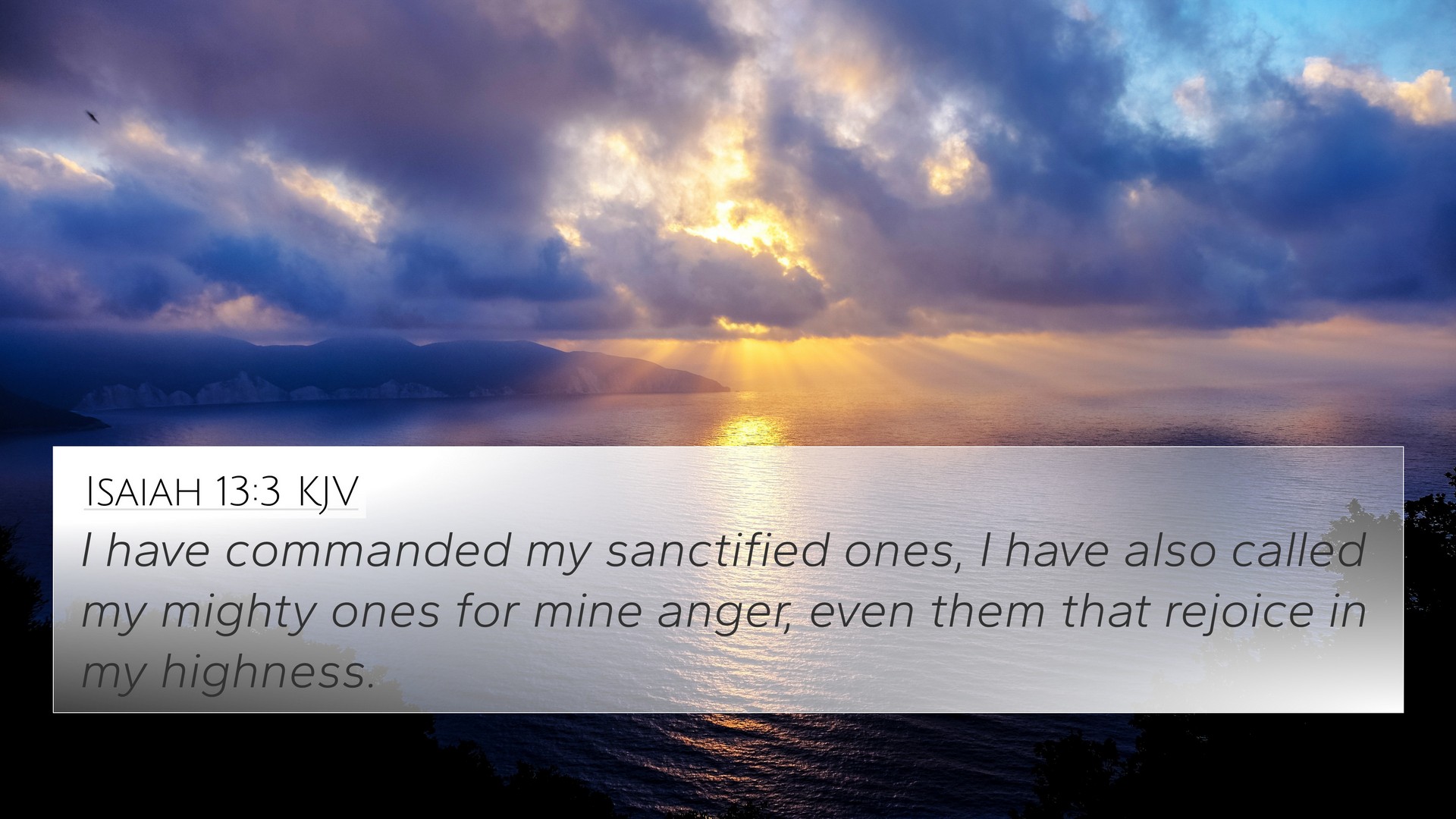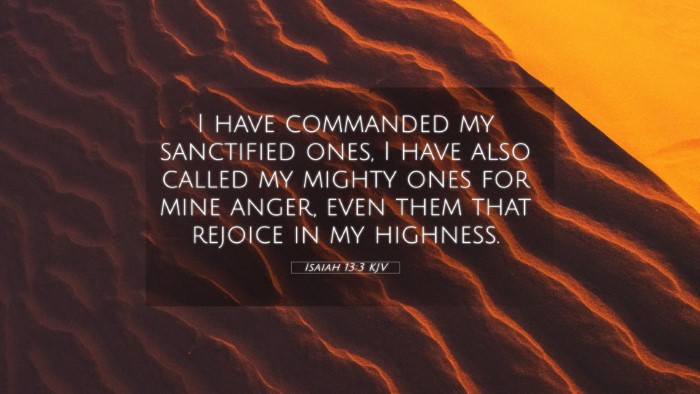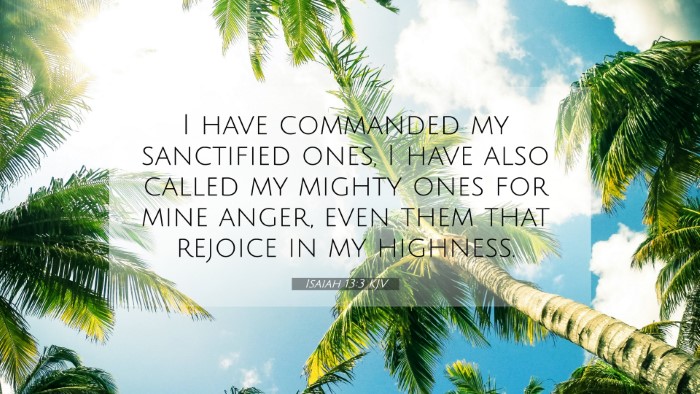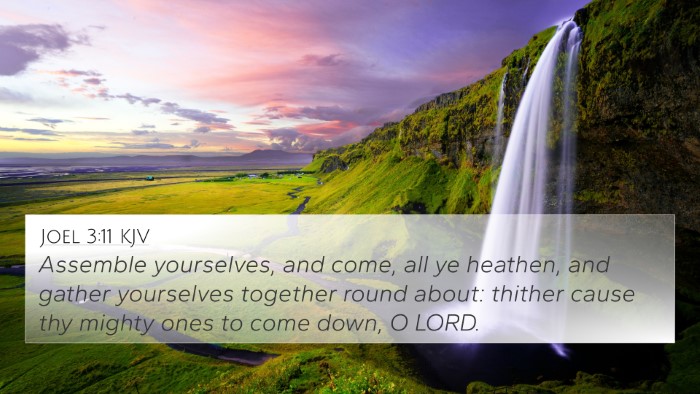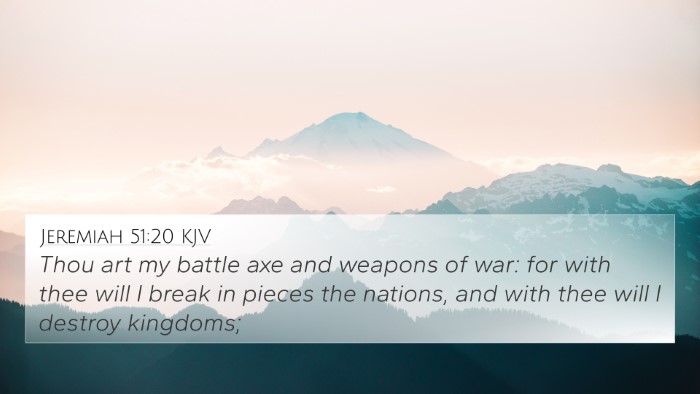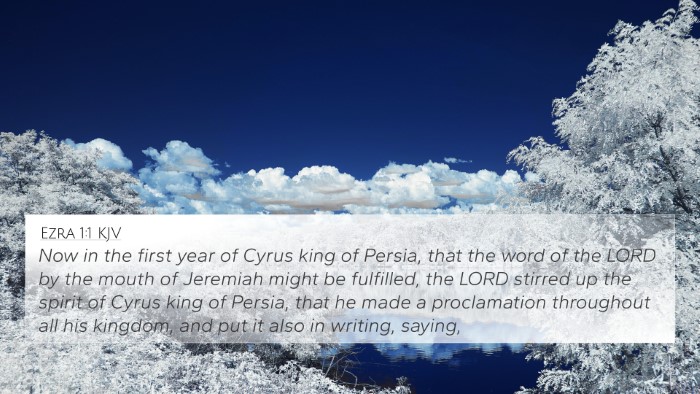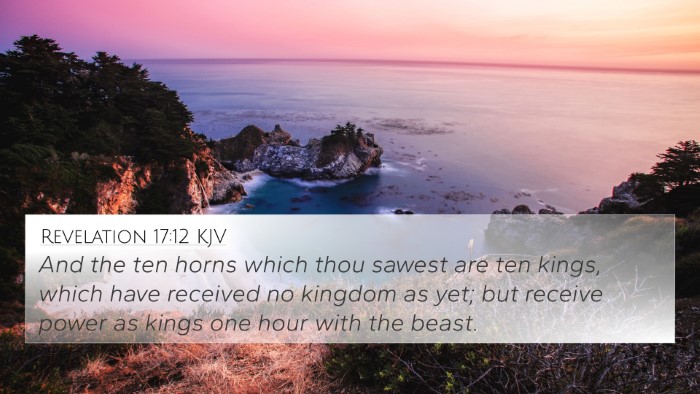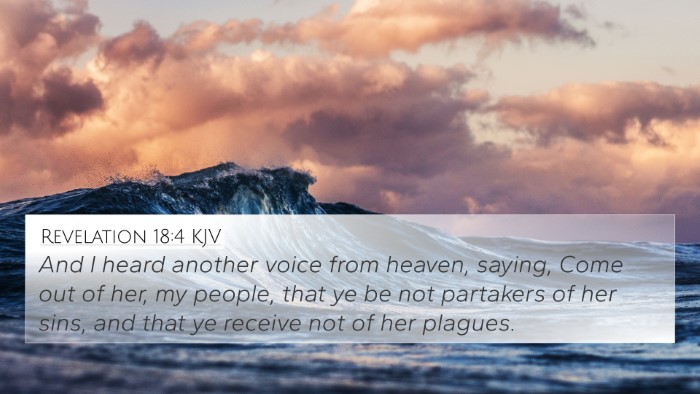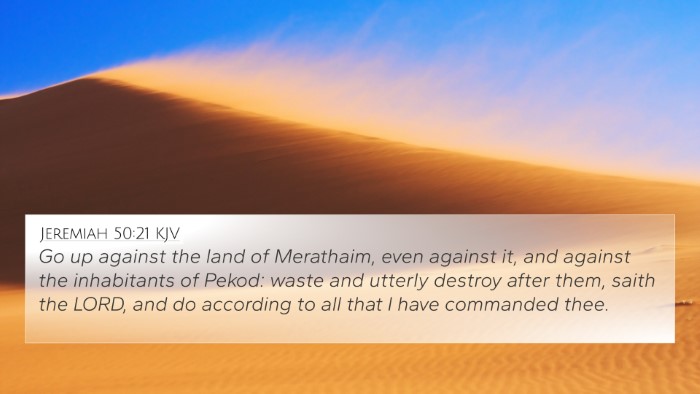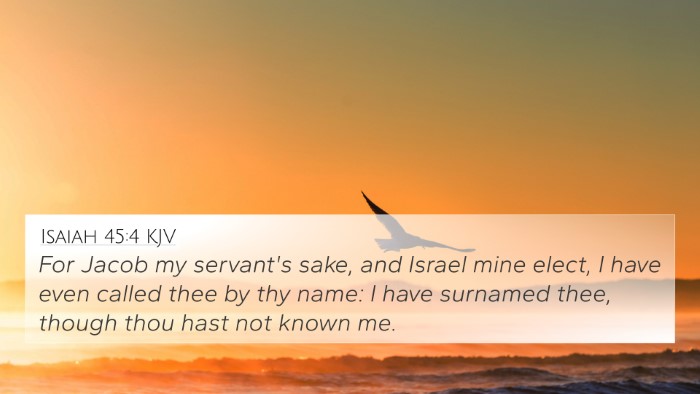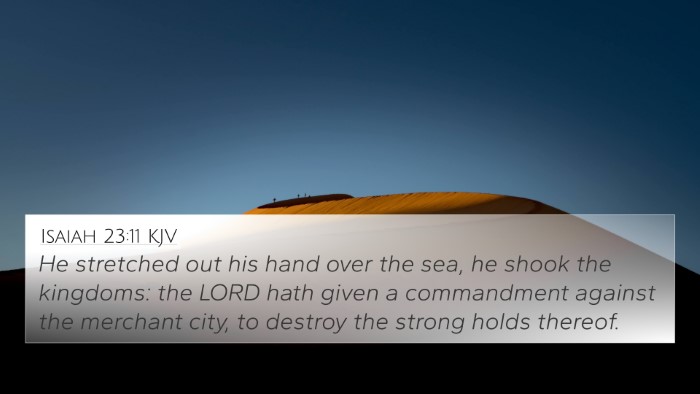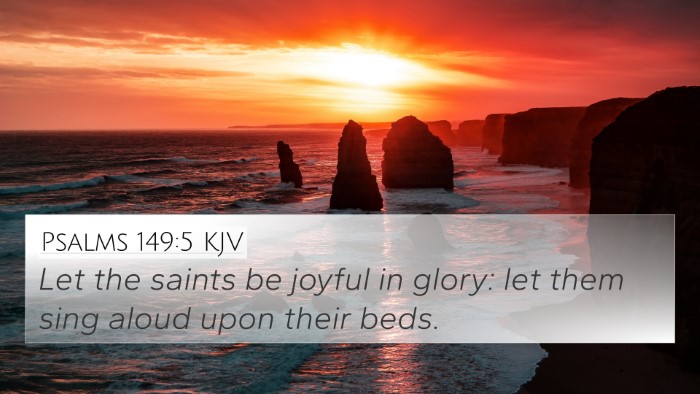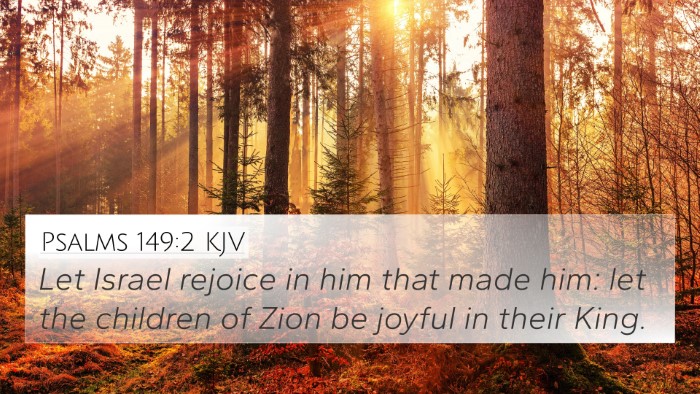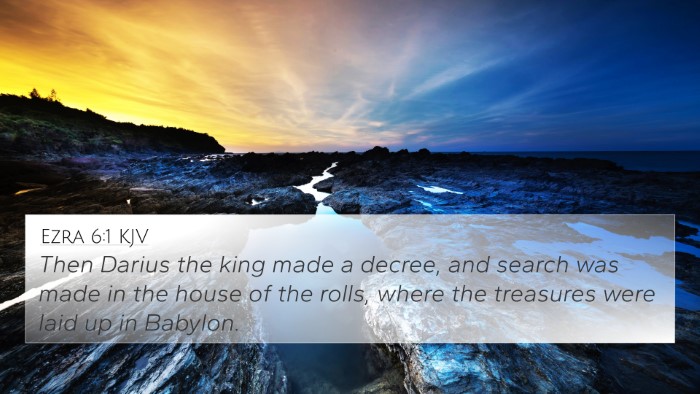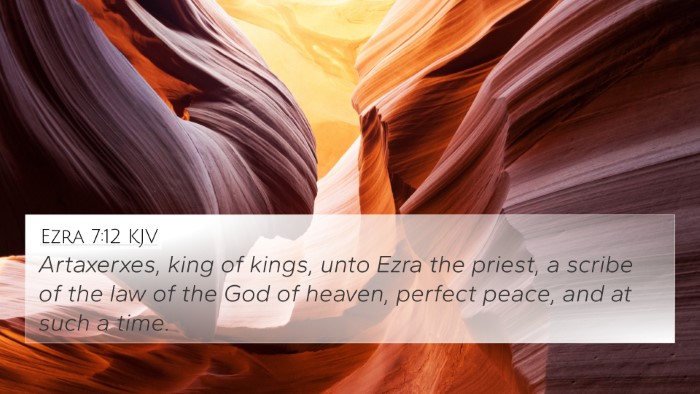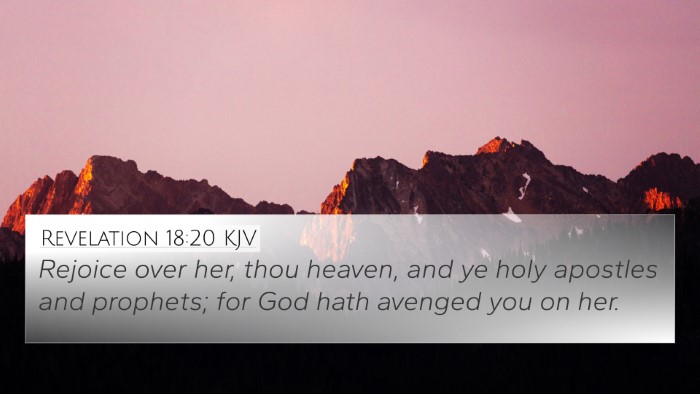Understanding Isaiah 13:3
Isaiah 13:3 states: "I have commanded my sanctified ones, I have also called my mighty ones for mine anger, even them that rejoice in my highness." This verse is rich in theological significance and prophetic elements, central to understanding God’s intentions and His dealings with nations.
Verse Summary
This verse highlights God's sovereignty in mobilizing His chosen instruments to fulfill His divine purposes. It reveals the tension between divine judgment and the holiness of His chosen ones—those He has set apart for specific purposes. Through this verse, Isaiah emphasizes God's control over earthly events, signifying that even the mightiest are under His command.
Commentary Insights
-
Matthew Henry interprets the "sanctified ones" as those appointed by God to carry out His decrees, suggesting that God has a divine purpose behind every action taken by His servants. He sees this as a reminder of God's authority and the seriousness of judgement.
-
Albert Barnes emphasizes the duality of God's nature in issuing both wrath and mercy. He explains that the "mighty ones" referred to may symbolize nations or individuals empowered to execute God’s judgment as instruments within His divine plan, drawing attention to and preparing for a forthcoming and significant judgement.
-
Adam Clarke provides insight into the term "called," stressing the idea that God actively invites His chosen ones into roles that further His plans, illustrating the concept of divine election and predestination within a broader context of prophecy and historical narrative.
Bible Cross-References
This verse connects richly with various passages that provide deeper understanding of relationships and themes within Scripture. Here are some notable cross-references:
- Isaiah 10:5-6 - Highlights the Assyrian as an instrument of God's wrath, linking to the theme of judgment.
- Jeremiah 25:29 - Discusses God's control over nations and the notion of His judgment coming to the earth.
- Joel 3:9-11 - A call to the nations for judgment, reflecting God’s command over spiritual and physical realms.
- Revelation 19:11-16 - Depicts Christ as a warrior, further illustrating the themes of divine judgment and authority.
- Romans 9:22-24 - Discusses God's sovereignty in mercy and wrath, tying back to the concept of appointed ones.
- Exodus 14:21-23 - God's intervention and sovereignty in delivering Israel, connecting events of judgment and salvation.
- Psalms 110:1 - A messianic reference that emphasizes God's power over His enemies, resonating with themes in Isaiah 13:3.
Thematic Connections
The themes in Isaiah 13:3 resonate throughout the biblical narrative, demonstrating the connections between judgment, divine calling, and prophetic fulfillment. Here are several key themes observed:
- Divine Sovereignty: The Lord orchestrates His plan through chosen instruments, showcasing His ultimate control.
- Holiness of God: The "sanctified ones" reveal God's call for holiness amid His judgement.
- Justice and Mercy: The balance of God's wrath against His mercy displays His righteous character, found throughout scripture.
Conclusion
In examining Isaiah 13:3 alongside public domain commentaries, one can appreciate the intricate weave of divine sovereignty, purpose, and the role of God's chosen ones in executing His will. This approach emphasizes the importance of thematic Bible verse connections and cross-referencing to gain a fuller understanding of scripture.
Further Study Recommendations
To deepen your study on Isaiah 13:3 and its connections:
- Utilize a Bible Concordance for tracking occurrences of the terms "sanctified" and "mighty."
- Explore a Bible Cross-Reference Guide to connect themes in Old and New Testament scriptures.
- Engage in Cross-reference Bible Study methods to compare similar passages in the prophets and the epistles.
